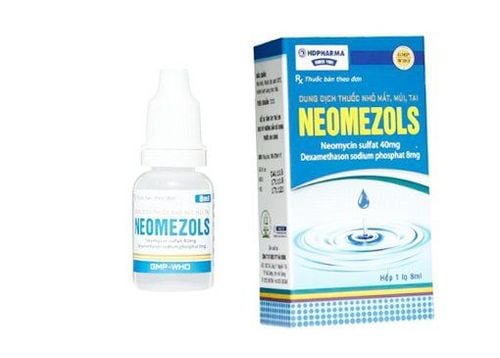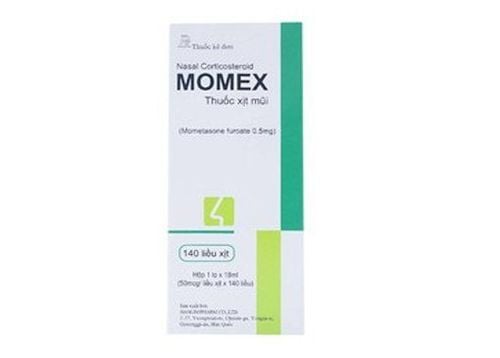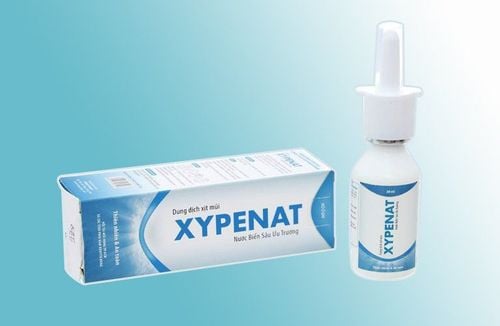This is an automatically translated article.
The article is professionally consulted by Specialist Doctor II Nguyen Van Thai - Doctor of Otolaryngology - Department of Otolaryngology and Head and Neck Surgery - Vinmec Danang International General HospitalNasal polyps are small cyst-like round masses, which can block the nose, cause breathing complications, sinusitis, double vision or abnormally far apart eyes,... Therefore, it is necessary to detect and treat nasal polyps early. . The two main methods of treating the disease are medication and surgery.
1. Overview of nasal polyps
Nasal polyps develop from the inflamed tissue of the nasal lining. The mucosa is the protective layer inside the nose and sinuses, and moistens the air that is inhaled. When irritated by inflammation or allergies, the lining of the nose becomes swollen and red, which can cause a runny nose. When the nasal mucosa is irritated for a long time, nasal polyps can form. Nasal polyps are small round, cyst-like masses that can block the nose.Predisposing factors for nasal polyps include: Chronic or recurrent rhinosinusitis, asthma, cystic fibrosis, allergic rhinitis, Churg-Strauss syndrome, sensitivity to non-steroidal anti-inflammatory drugs (NSAIDs) and There is a genetic predisposition to genes that induce the response of the nasal mucosa to inflammatory agents.
Nasal polyps are soft, painless masses located inside the nose. They usually appear in the upper sinuses that drain to the nose (where the eyes, nose, and cheekbones meet). Patients may not even know they have nasal polyps. When nasal polyps grow large enough, they will cause nasal obstruction, prolonged nasal congestion, runny nose, runny nose after too much phlegm flows down the back of the throat, breathing through the mouth, sleep apnea, decreased sense of smell , feeling increased pressure in the forehead or face, snoring, headache.
Small and solitary nasal polyps rarely cause complications. However, one large polyp or many small polyps can cause complications such as acute or chronic sinusitis, difficulty breathing while sleeping, structural changes in the face causing diplopia (double vision) or eyes that are abnormally far apart. (is a rare complication, usually occurs in patients with cystic fibrosis).
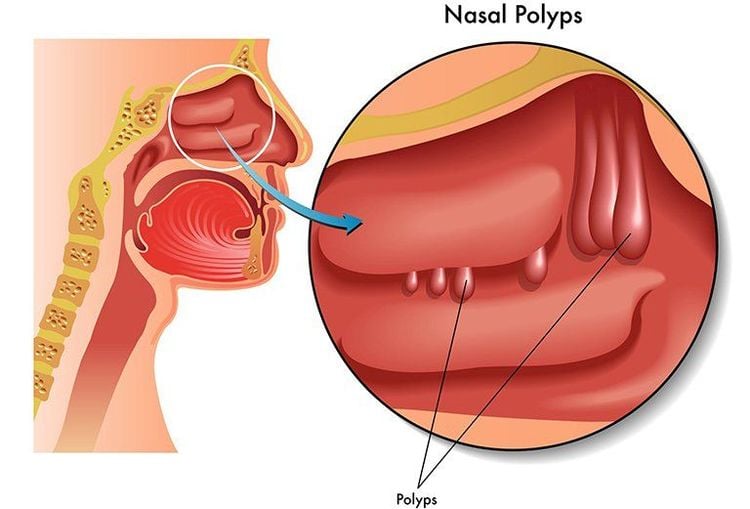
2. Treatment of nasal polyps
When there are signs of nasal polyp diagnosis, the patient should go to a medical facility for an accurate diagnosis and appropriate treatment indications. There are two main methods of treating nasal polyps: medication and surgery. Use drugs when polyps are small and need to strictly follow the doctor's instructions to avoid side effects. With large polyps causing difficulty breathing, loss of smell, ringing in the ears, ... or other complications, it is necessary to have endoscopic surgery to cut nasal polyps and sinus surgery, create ventilation in the nasal sinuses and reduce the possibility of polyp recurrence. .2.1 Medical treatment - take medicine as prescribed by a specialist Anti-inflammatory drugs can reduce the size of nasal polyps and relieve symptoms of nasal obstruction. Specifically:
Corticosteroid nasal sprays: Such as triamcinolone (Nasacort), fluticasone (Flonase), budesonide (Rhinocort), flunisolide (Nasarel), or mometasone (Nasonex) to treat patients with one or more small nasal polyps. These medications reduce inflammation, increase airflow through the nose, and help shrink polyps. However, when use is stopped, symptoms can return quickly. Side effects of steroid nasal sprays include nosebleeds, sore throat, or headache; Oral or injectable corticosteroids such as prednisone: May be used if nasal sprays are not effective. However, this is not a long-term solution because corticosteroids can cause many side effects such as fluid retention, high blood pressure and glaucoma; Antihistamines or antibiotics: Used to treat sinusitis or allergic rhinitis, helping to relieve nasal congestion, even though polyps cannot be ruled out; Antifungal drugs: Some cases of chronic sinusitis are the result of an abnormal immune response of the body to surrounding fungi. For this reason, the doctor will prescribe the patient to use antifungal medication, combined with surgical removal of the fungal fragments. 2.2 Nasal polyp surgery Nasal polypectomy is indicated when drugs are not effective. For patients with cystic fibrosis who have nasal polyps and are resistant to corticosteroids, surgical removal of nasal polyps is the only option. The surgical method chosen depends on the number and location of polyps. Specifically:
Polypectomy: Indicated for small and solitary polyps, polyps can be easily removed by using a small mechanical suction tool or a microdebrider. After polypectomy, the patient is treated for the inflammation, often using a nasal spray containing corticosteroids and sometimes antibiotics and oral corticosteroids. After removing nasal polyps, the disease can still recur and need surgery again; Endoscopic sinus surgery: A more extensive surgical procedure that not only removes polyps but also opens up the part of the sinus where the polyps form. If your sinuses are blocked and inflamed, your doctor will widen the cavity. The doctor inserts a small, flexible bronchoscope with a camera and a small instrument on the tip of the patient's nose, looks for polyps and other abnormal structures, and then removes them. Laparoscopic surgery only makes very small incisions, so the incisions heal faster and with less pain than other types of surgery. However, patients still need several weeks to fully recover, and polyps are still at risk of recurrence. After surgery, patients need to spray their nose with physiological saline to prevent nasal polyps from growing back.
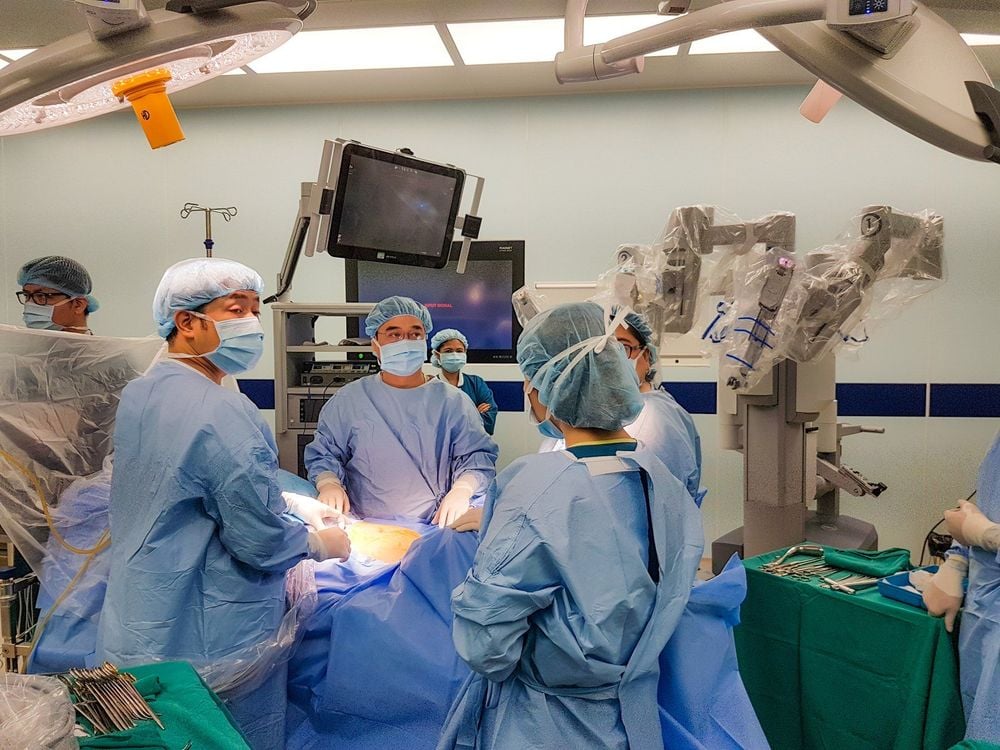
3. How to prevent and limit the progression of nasal polyps?
Avoid irritants: Air pollution, smog, pollen and irritants will make inflammation worse, irritate the sinuses, cause allergies, form nasal polyps; Definitive treatment of asthma or allergies because these are diseases that easily cause nasal polyps; Keep good nasal hygiene by regularly washing hands, prevent bacterial infection to avoid the risk of allergic rhinitis, sinusitis; Keep the surrounding environment moist to improve the respiratory condition in the sinuses, avoid inflammation and congestion; Rinse your nose regularly with salt water to help clear air in your nose and remove allergens and other irritants. It is recommended to use saline without the preservative benzalkonium to avoid irritating the nasal mucosa. Nasal polyps are not too dangerous, but they significantly affect the quality of life of patients. Therefore, when experiencing problems such as nasal congestion, runny nose, decreased sense of smell, prolonged rhinosinusitis, ... patients should see an otolaryngologist to check and accurately diagnose the condition. health status and appropriate treatment interventions.
Otolaryngology - Vinmec International General Hospital is an address specializing in the examination and treatment of sinusitis as well as common ENT diseases, head and neck tumors, congenital malformations in the ear area. nasopharyngeal surgery by common surgical methods such as surgery, microscopic or endoscopic tympanic membrane patching, fistula removal surgery, Bondy surgery, nasopharyngeal aerosolization, nasal constriction, nasal coil burning... with the system modern nasopharynx Karl Storz, Computerized tomography (CT Scan) with 640-slice CT Scan for early and accurate diagnosis.
Please dial HOTLINE for more information or register for an appointment HERE. Download MyVinmec app to make appointments faster and to manage your bookings easily.





